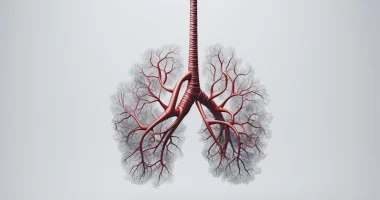Calcium Deficiency, which means having low calcium levels in the blood, can cause symptoms like muscle pain and tiredness. To increase calcium levels, healthcare providers might suggest eating more foods high in calcium or consuming calcium supplements.
If someone has a calcium deficiency for a long time, it can cause more serious health problems. These may include changes in dental health, the development of cataracts (which affect the eyes), changes in brain function, and osteoporosis, a condition that makes bones weak and brittle.
In the early stages, calcium deficiency might not cause any noticeable symptoms. Although it is usually mild, if it is not treated, it can become a serious and potentially life-threatening condition.
Symptoms
In the early stages, calcium deficiency might not cause any noticeable symptoms. However, as the condition worsens, various symptoms can begin to appear.
Serious hypocalcemia can lead to memory loss or confusion, muscle spasms, tingling and numbness in the face, hands, and feet, hallucinations, depression, muscle cramps, brittle and weak nails, and an increased likelihood of bone fractures. Calcium deficiency can affect many areas of the body, resulting in brittle nails, gradual hair growth, and thin, fragile skin.
Calcium is also crucial for the proper functioning of muscle contractions and neurotransmitters. As a result, a deficiency can lead to seizures, even in individuals who are otherwise healthy.
If you begin experiencing neurological signs like memory loss, tingling and numbness, seizures, or hallucinations it’s important to see a healthcare provider as soon as possible.
Treatment and Prevention
To treat or prevent calcium deficiency, the safest and simplest approach is to increase the intake of calcium-rich foods in your diet.
Some excellent sources of calcium include dairy products like milk, yogurt, cheese, beans, broccoli, figs, soy milk, tofu, spinach, fortified cereals, and seeds and nuts like sesame seeds and almonds.
Before using calcium supplements, it’s important to consult with a healthcare provider. Consuming too much calcium, a condition known as hypercalcemia can lead to serious health issues, including an increased chance of kidney stones, cardiovascular disease, and other complications.
In cases where the deficiency is severe or dietary changes and supplements are not enough, a healthcare provider may recommend calcium injections.
Causes
As people age, they become more susceptible to calcium deficiency, known as hypocalcemia. Several factors can contribute to this condition, including inadequate calcium consumption over a prolonged period, particularly during childhood, which can affect bone health later in life.
Certain medications may interfere with calcium absorption, increasing the risk of deficiency. Additionally, individuals with dietary intolerances to calcium-rich foods may struggle to consume enough calcium. Hormonal changes, particularly in women during menopause, can also play a significant role in reducing calcium levels. Genetic factors may further influence the risk of developing hypocalcemia.
Ensuring adequate calcium intake at all ages is essential for maintaining bone health and overall well-being.
Is Calcium deficiency common?
The prevalence of calcium deficiency is not precisely known, but certain groups are at higher risk. These include postmenopausal individuals, those with amenorrhea, individuals with lactose intolerance, and individuals following vegetarian or vegan diets. In the United States, females over the age of 4, particularly adolescent males, and females aged 9 to 18 or over 51, are also at higher chance of calcium deficiency.
Globally, an estimated 3.5 billion individuals may be at risk due to low dietary calcium intake, as reported in 2015. In general, females are less likely than males to consume sufficient calcium, often unaware of their low levels.
Complications
Complications of calcium deficiency can include a range of health issues. People with low calcium levels may experience dental problems, such as weakened teeth or tooth decay. Additionally, calcium deficiency has been linked to depression and various skin conditions.
Muscle pain or chronic joint are common symptoms, and those affected may also be more prone to fractures due to weakened bones. In severe cases, calcium deficiency can lead to seizures and even disability, highlighting the importance of maintaining adequate calcium levels for overall health.
When to consult a healthcare provider
If you experience signs of calcium deficiency, it’s important to consult a healthcare provider. They can perform tests to measure the calcium levels in your blood.
Hypocalcemia, or calcium deficiency, is defined by healthcare providers as having blood calcium levels below 8.8 mg per deciliter.
For adults aged 19 to 50, the suggested daily intake of calcium is 1,000 mg. However, older adults require more calcium: women aged 51 and older and men aged 71 and older should aim to consume 1,200 mg each day.
Summary
Calcium deficiency, or hypocalcemia, often develops without symptoms but can lead to serious health issues like dental problems, depression, and brittle bones. It can be caused by inadequate calcium intake, medication effects, dietary intolerances, hormonal changes, and genetic factors.
To prevent or treat deficiency, it’s important to consume calcium-rich foods or supplements, following medical advice to avoid hypercalcemia. If severe, calcium injections may be necessary. Regular calcium intake is crucial, especially for older adults, to maintain overall health and prevent complications.









